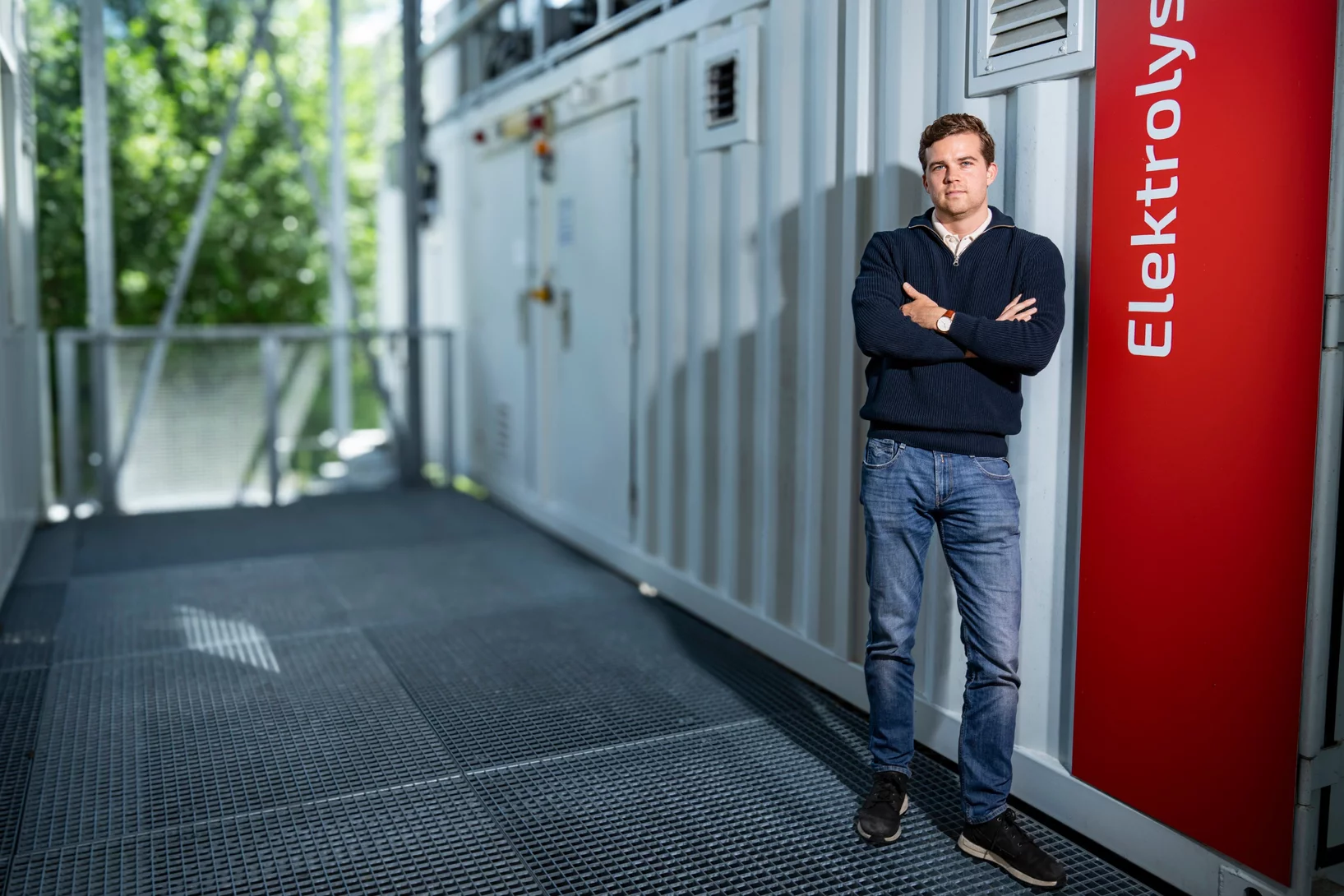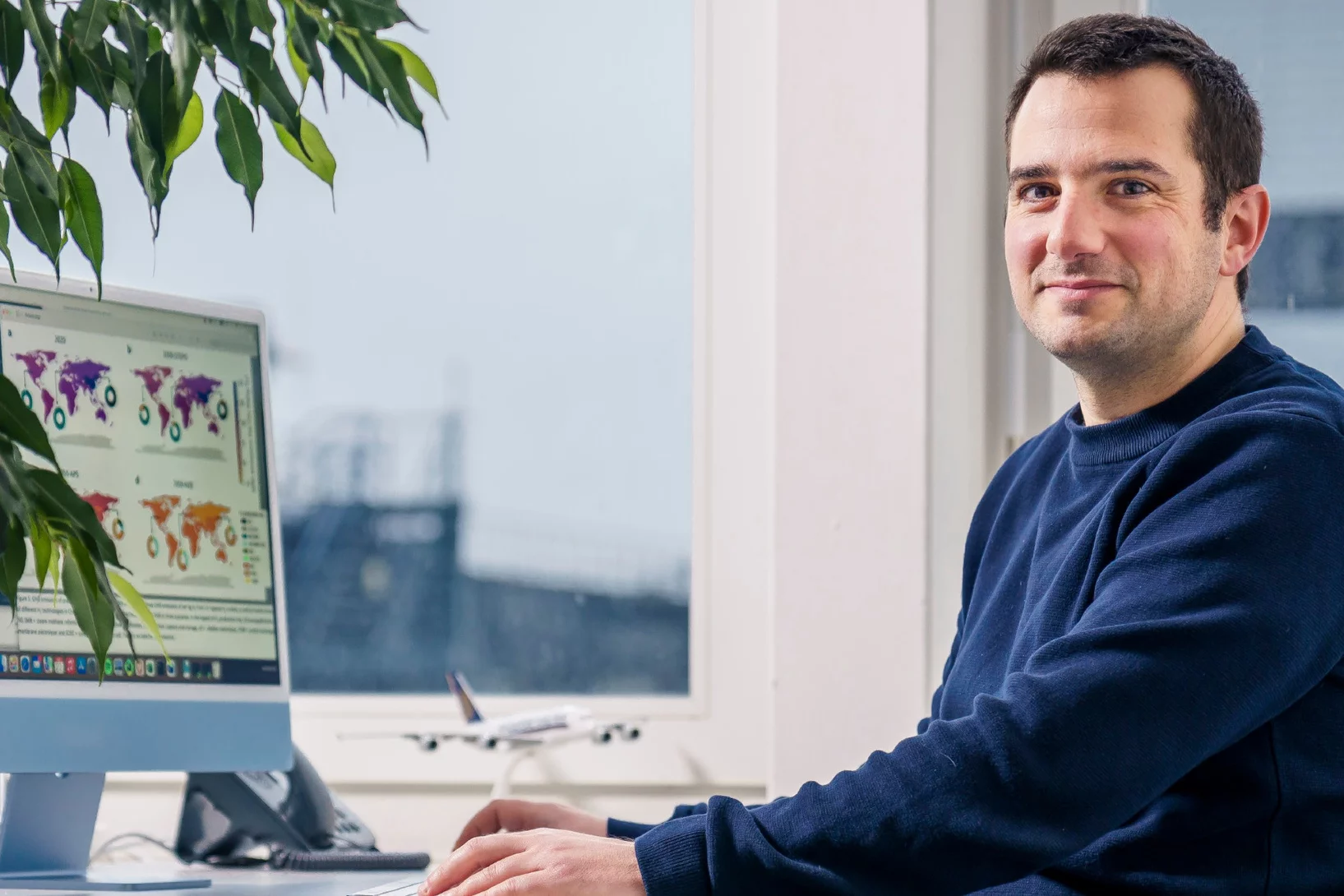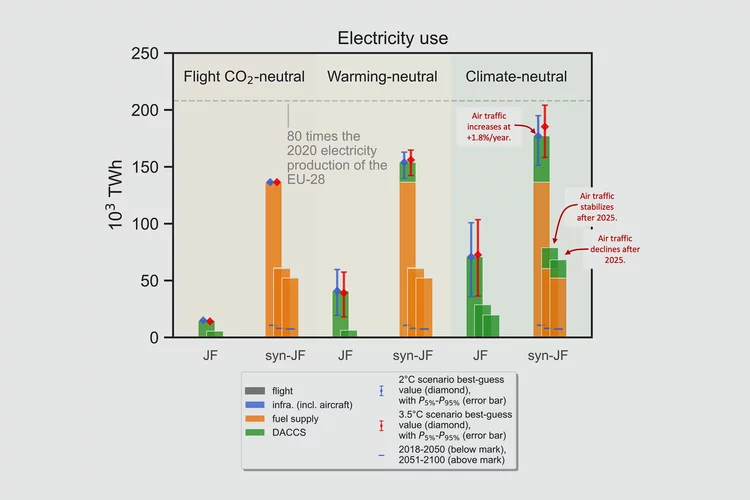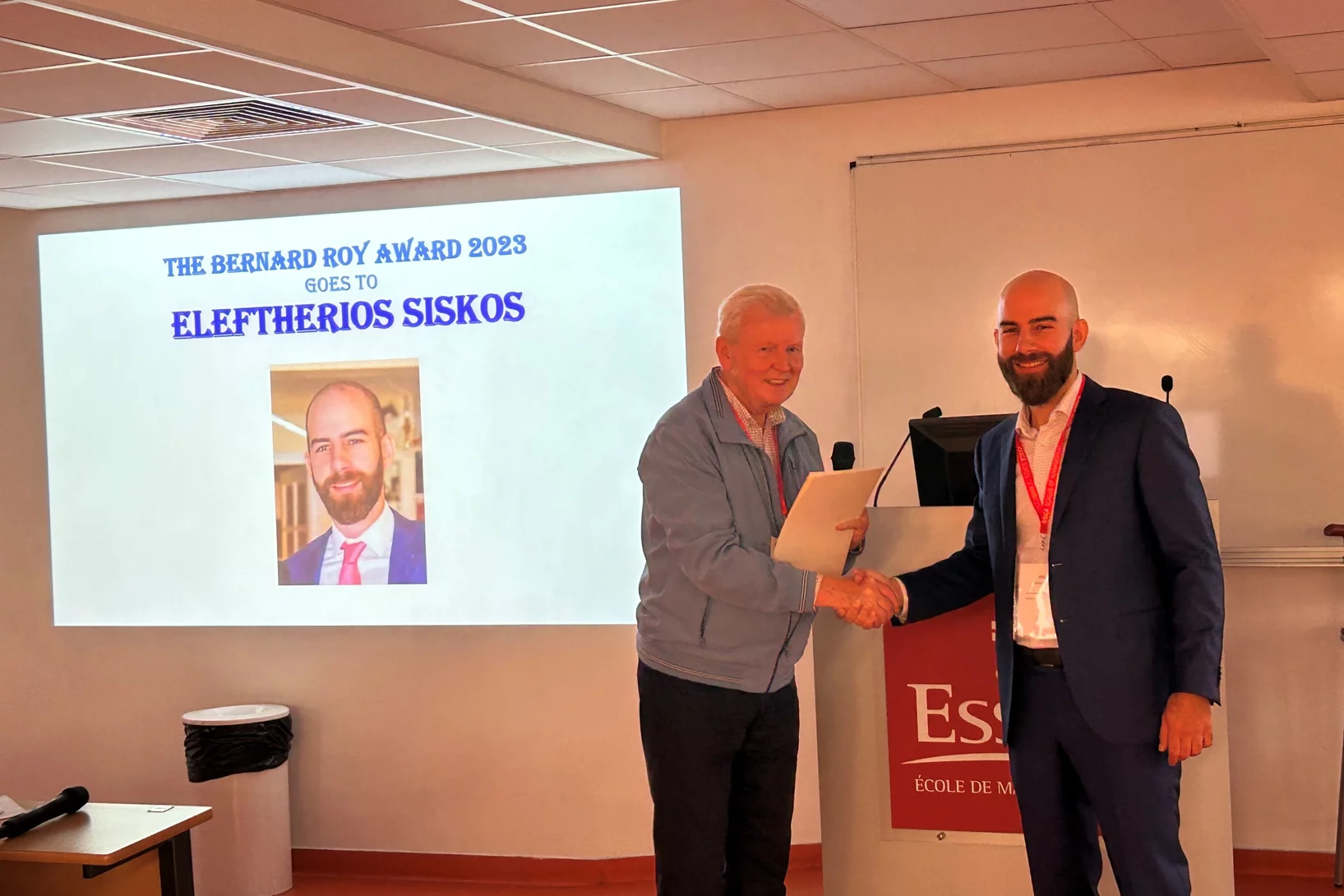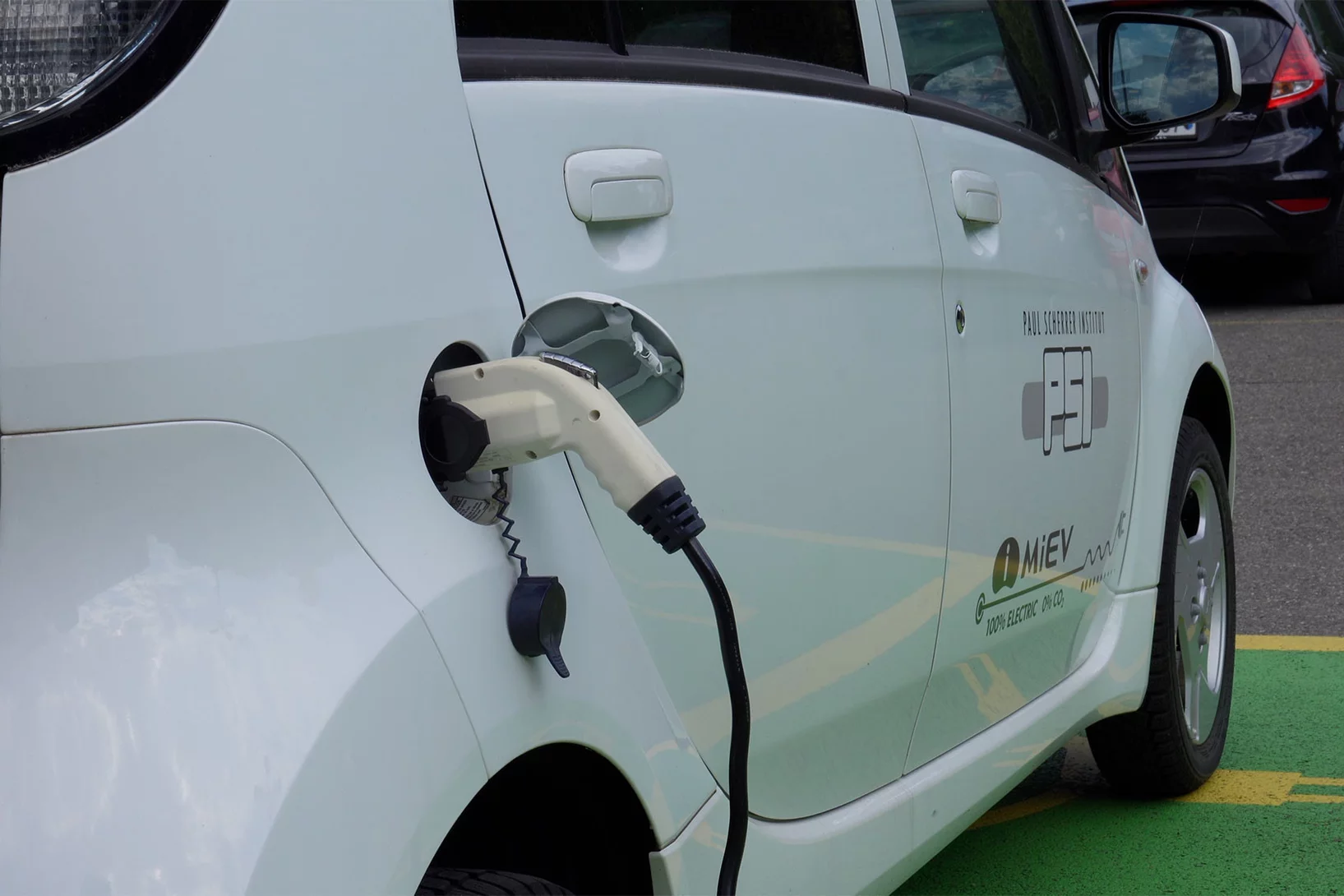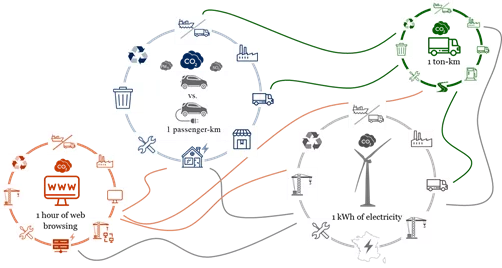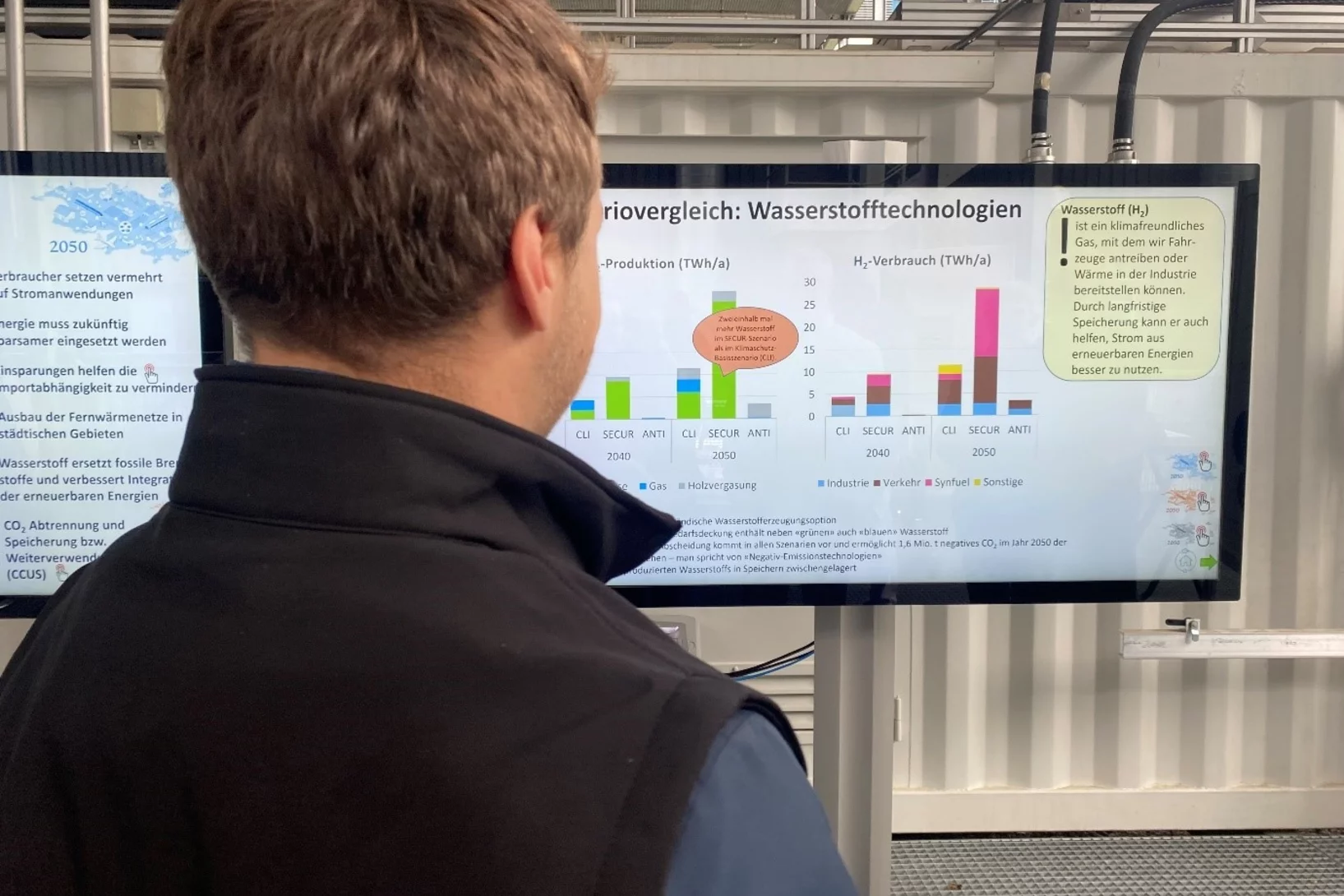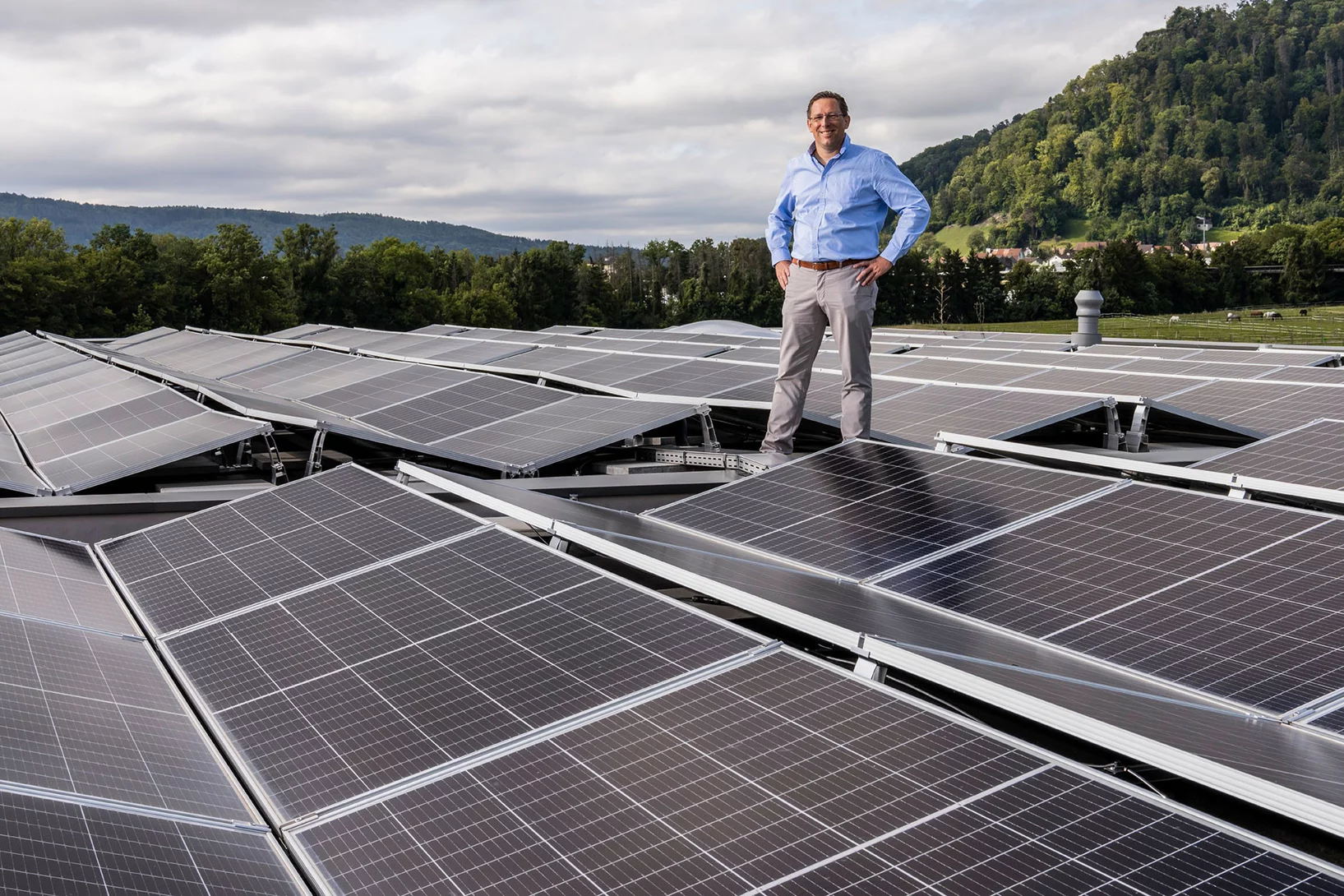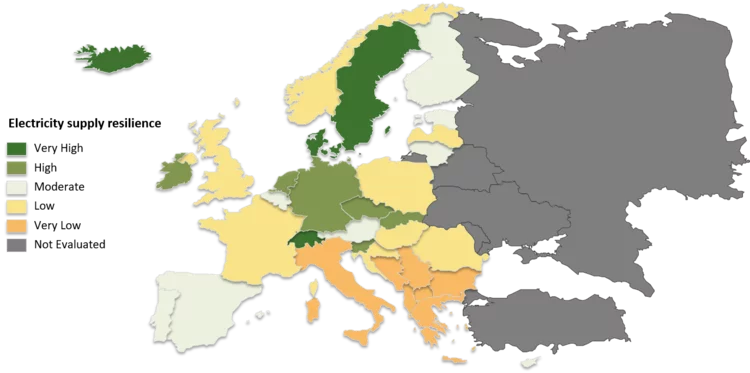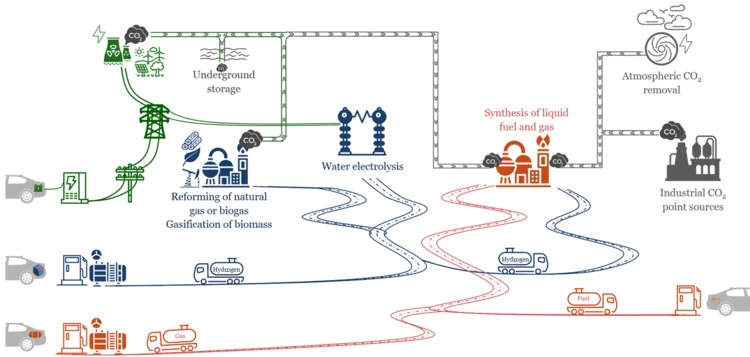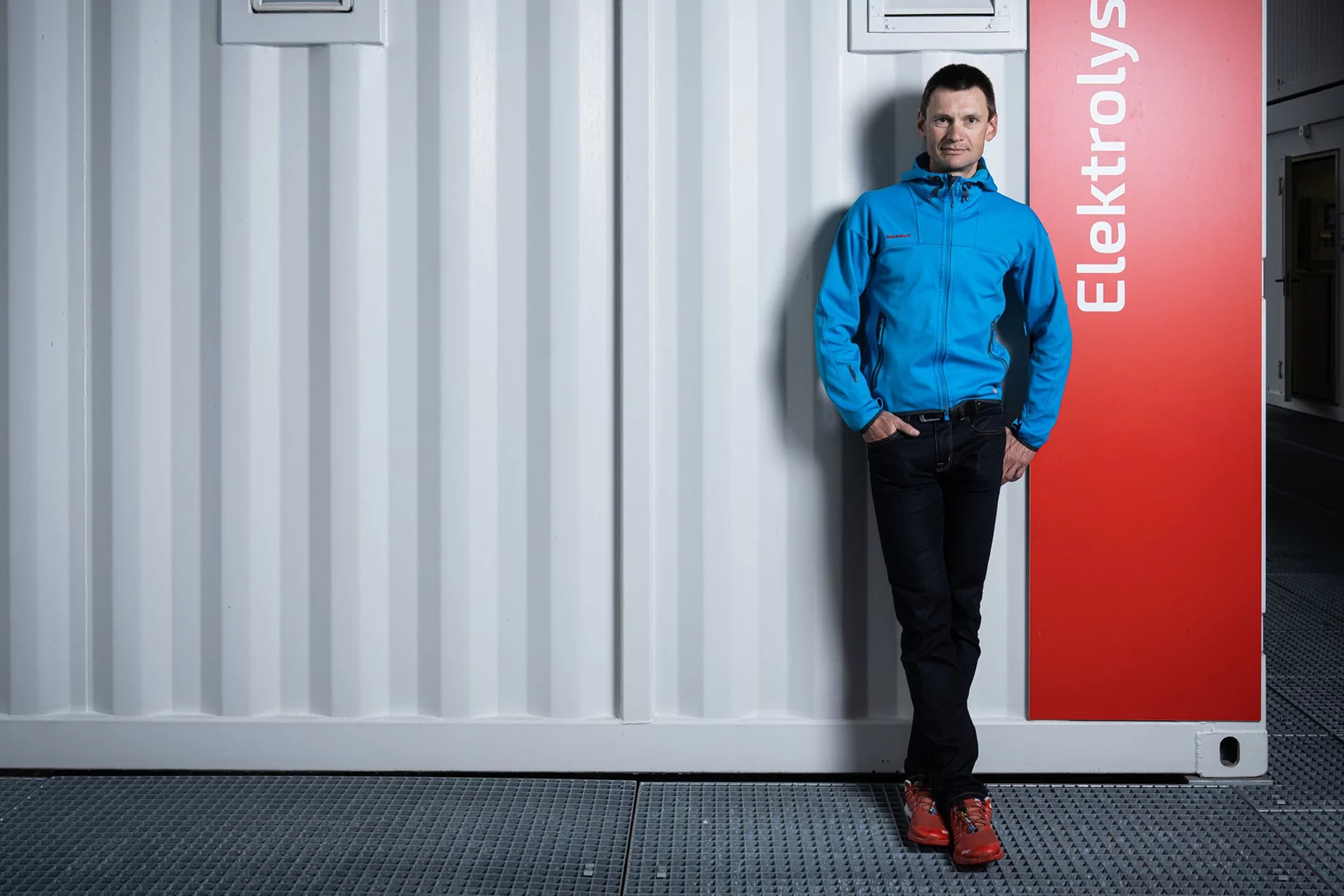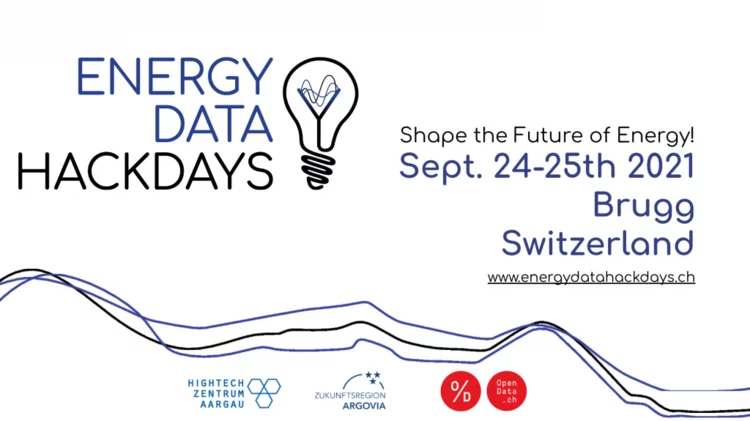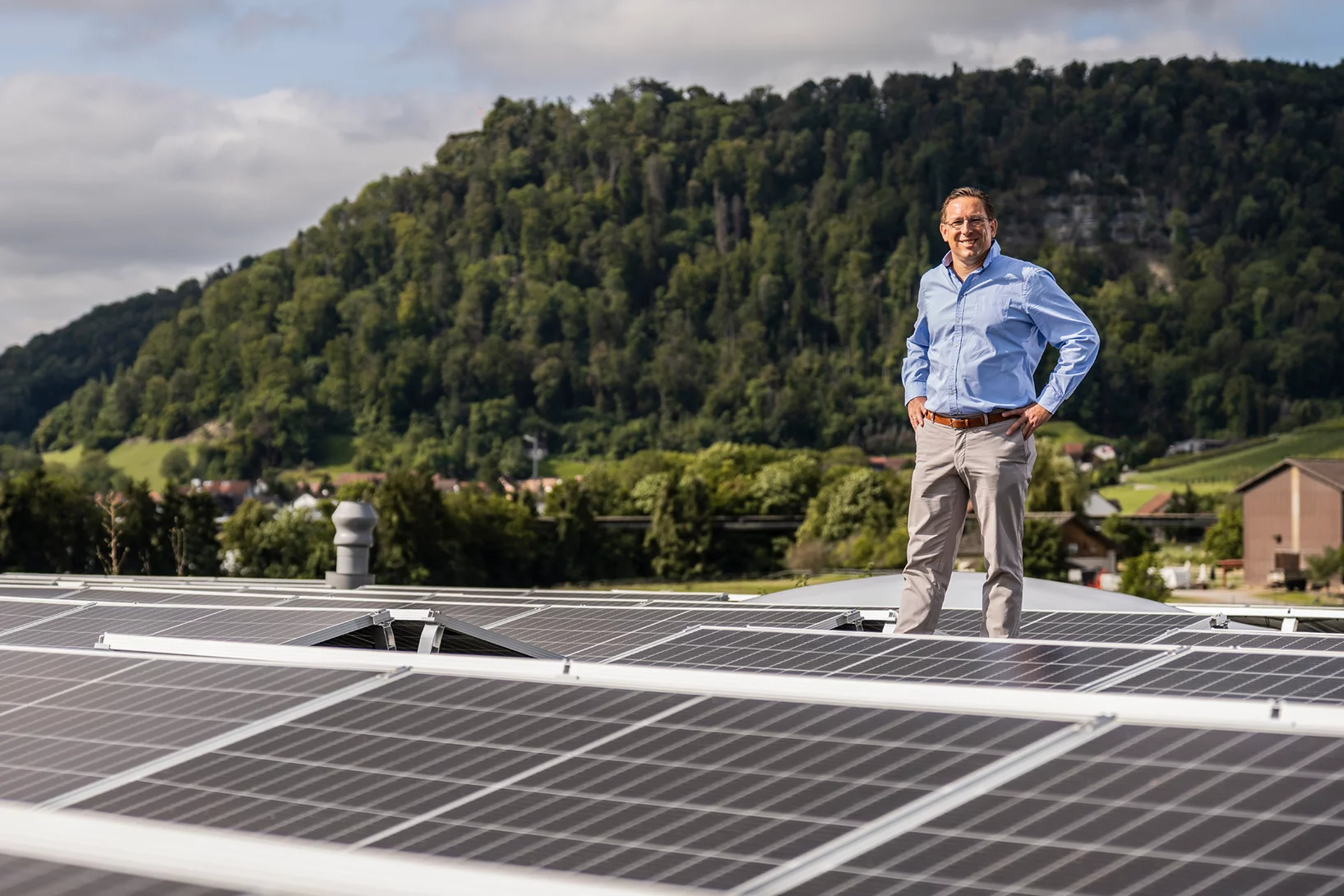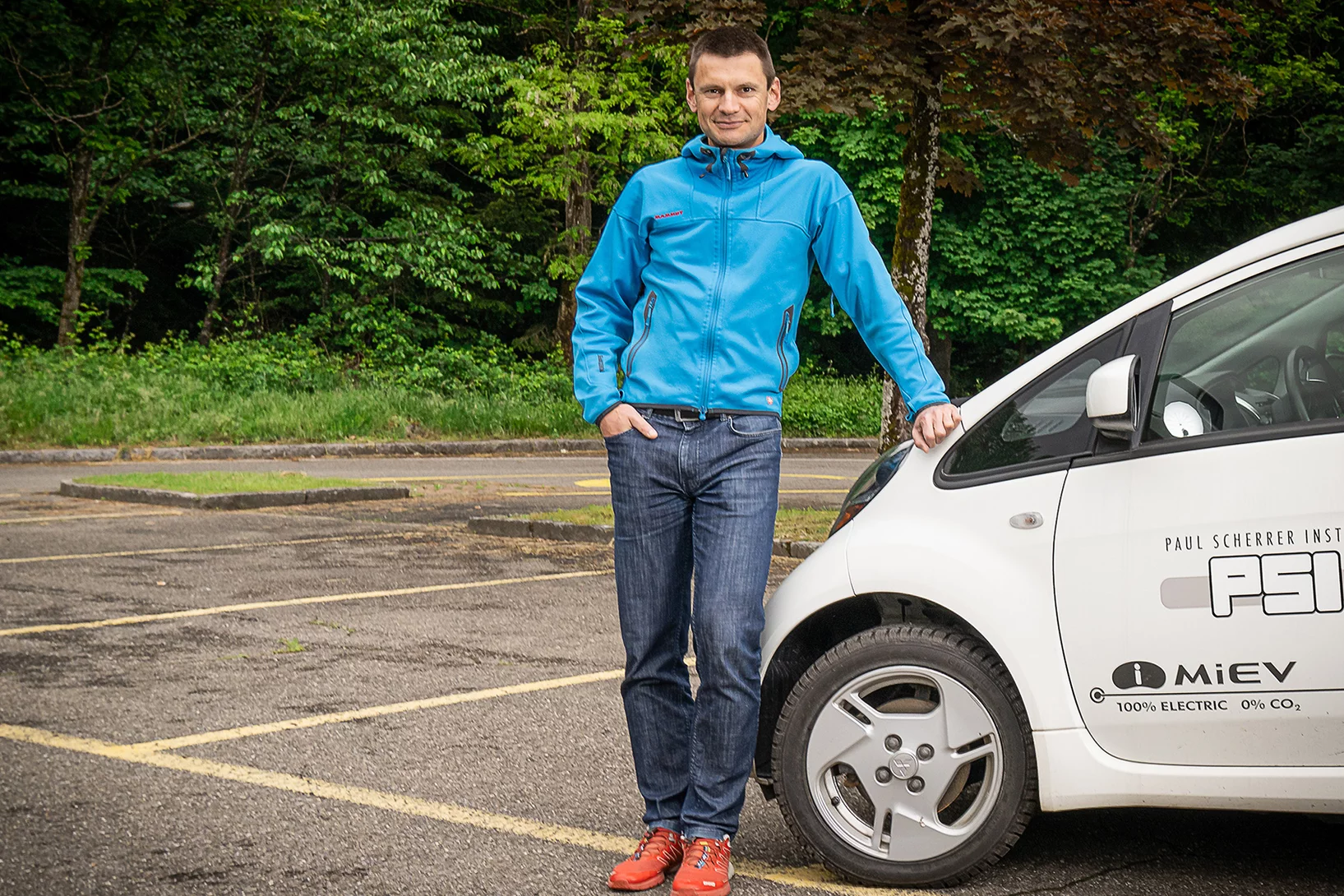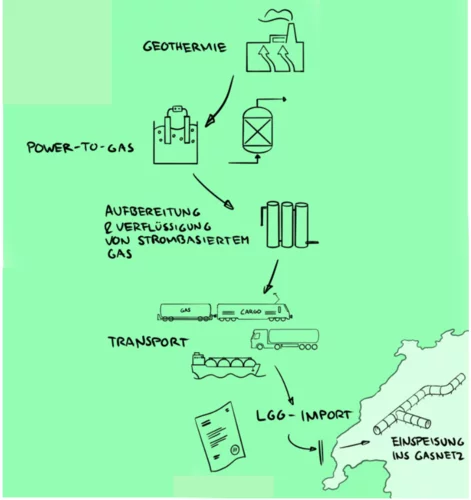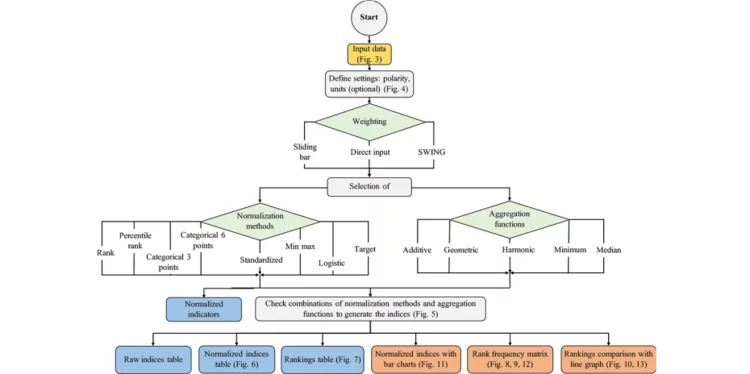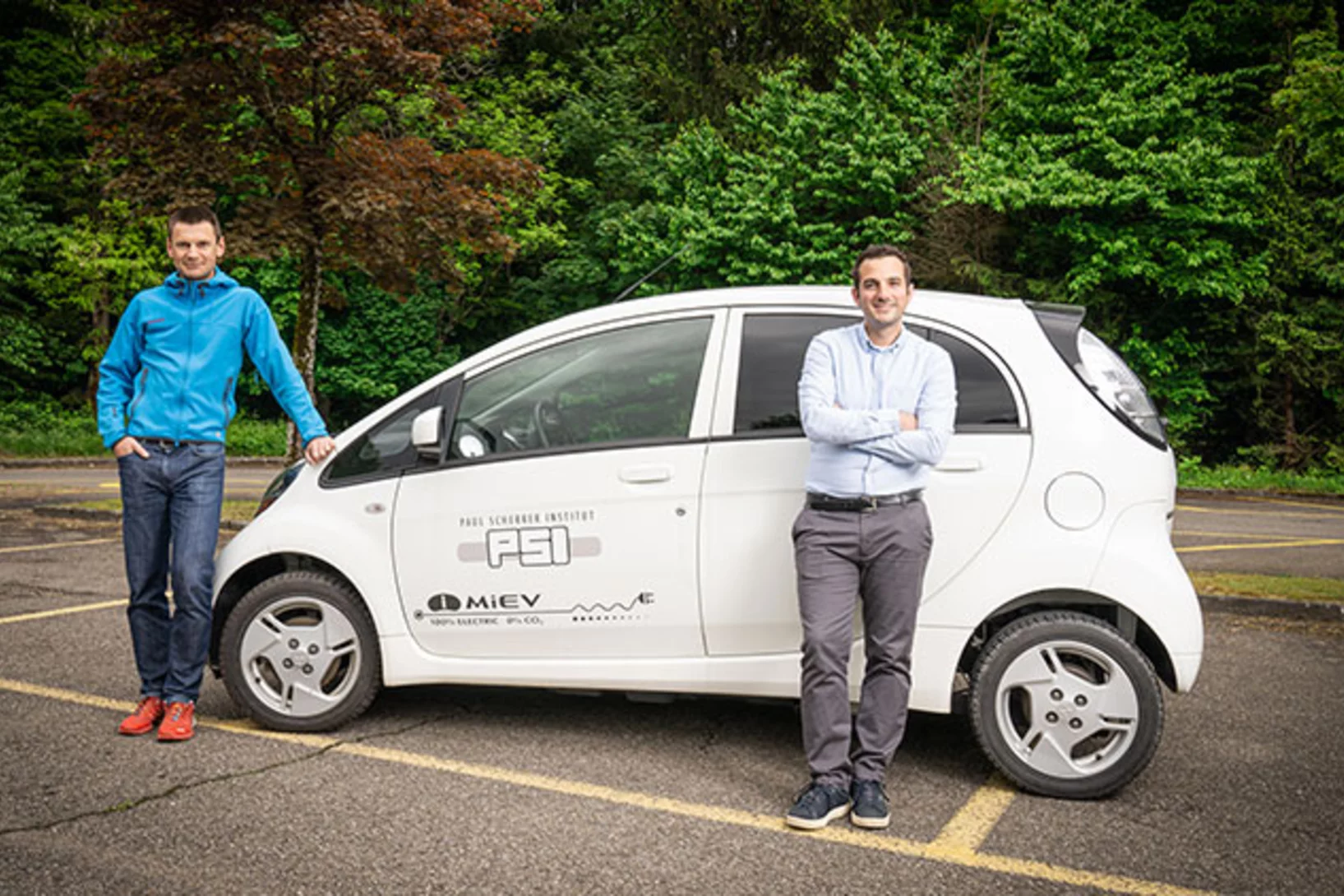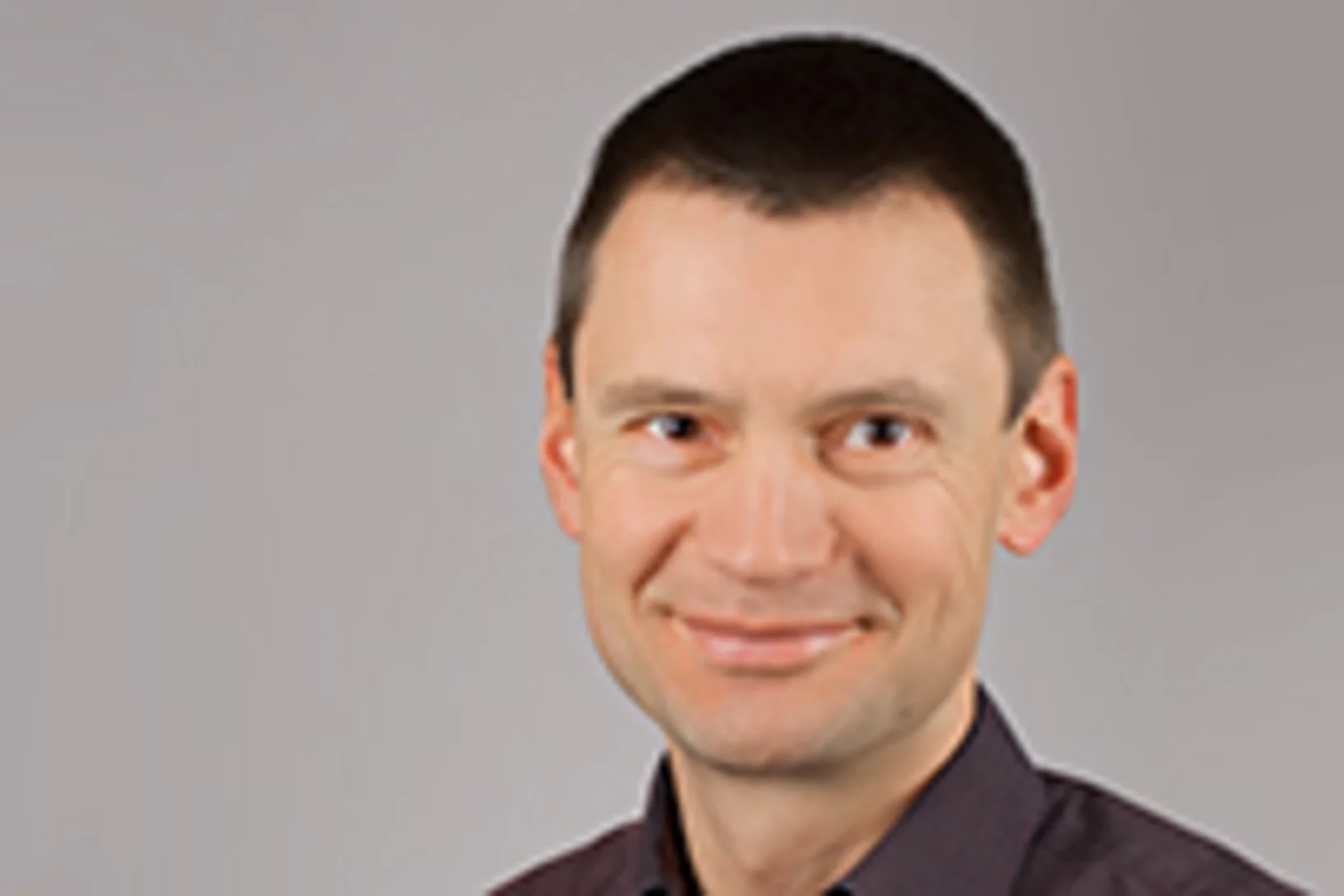Ein komplexes Versprechen
Zur klimaneutralen Luftfahrt gehört mehr als nur die Reduktion der Emissionen beim Fliegen selbst. Eine Studie des PSI analysiert, was zum Erreichen des Fernziels nötig ist.
Schnell wie ein Flug, sauber wie ein Zug
In einer schweizweiten Zusammenarbeit haben Forschende die voraussichtlichen Umweltauswirkungen von sogenannten Hyperloop-Systemen untersucht.
Wo soll Wasserstoff in Zukunft produziert werden?
Forschende des PSI haben untersucht, wo der Wasserstoff für eine zukünftige Wasserstoffökonomie produziert werden sollte und welche Folgen für die Umwelt dieser Energieträger mit sich bringt.
Wie sauber ist Wasserstoff für die Energiewende?
Wasserstoff kann für den Übergang zu einem Netto-Null-Energiesystem von entscheidender Bedeutung sein – allerdings muss er dafür richtig produziert werden.
Climate-neutral aviation: will it fly?
The European aviation sector stands at a pivotal juncture in its quest to achieve net-zero climate impacts. Focusing on flight CO2 emissions overlooks up to 80% of the sector's climate repercussions.
Our research delves deep into the role of electricity-based synthetic jet fuels and direct air carbon capture and storage (DACCS) as potential game-changers. These solutions promise climate-neutral aviation, but there's a catch: the relentless rise in air traffic. Relying solely on renewables-derived synthetic fuels may strain both economic and natural resources. On the flip side, offsetting fossil jet fuel impacts via DACCS poses its own set of challenges. Our findings underscore one clear message: for a genuinely climate-neutral European aviation, we must reconsider the scale of air traffic.
Dr. Eleftherios Siskos is the recipient of the Bernard Roy Award 2023
Dr. Eleftherios Siskos has received the prestigious Bernard Roy Award 2023 by the European Working Group (EWG) on Multiple Criteria Decision Aiding (MCDA).
Wie lässt sich Kobalt in E-Auto-Batterien reduzieren?
Die Elektrifizierung des Verkehrs nimmt zu. Dafür braucht es mehr Batterien. Einige dieser Batterien enthalten jedoch einen äusserst problematischen Rohstoff: Kobalt. Das PSI forscht an Alternativen.
Klimaneutrales Fliegen: Ist das möglich?
Für dieses Ziel braucht es vor allem nachhaltige Treibstoffe und eine Reduktion des Flugverkehrs.
Latest Version of "Mobiltool" Released
How do you get from A to B in the most environmentally friendly way? This question can now be answered quite easily with the latest version of the "mobitool". Read the article to learn more.
Our Group at the PSI Open Doors Event 2022: Discovering Energy Systems Modelling and Sustainability
On Sunday, 23rd of October, the Paul Scherrer Institute opened its doors and invited the public to explore and experience the manyfold topics which are researched at PSI. The Laboratory for Energy Systems Analysis was present at two stations. Read the article to learn more.
Vorbereiten auf Energie-Mangel und Blackout
Peter Burgherr ist Risikoforscher am PSI. Im Interview spricht er über eine mögliche Strommangellage im kommenden Winter und wie man sich darauf vorbereiten kann.
Evaluation of European electricity supply resilience
The increasing risk of extended electricity supply disruptions and severe electricity price fluctuations strongly motivate an evaluation of electricity supply resilience. In this direction, this research proposes a multicriteria decision support framework to assess resilience at a country level, based on three major dimensions: Resist, Restabilize and Recover. In total, 35 European countries are ranked according to their performance on 17 indicators, through a synergy of MCDA methods, techniques and communication protocols. The assessment framework has been extended to incorporate the Choquet Integral method, in order to accommodate potentially interacting pairs of criteria and negate their arbitrary effects on the final evaluation results. The analysis incorporates country data from credible international databases, as well as the preference information of a European energy expert. The results are envisaged to support energy policymakers in Europe and provide guidelines and areas for improvement at a country level.
E-fuels and electrification as complementary approaches to achieve climate target
Sustainable, synthetic fuels, so-called e-fuels, can help reduce CO₂ emissions. For their production, electricity from renewable sources is required in order to allow for a close to CO₂-neutral balance. The availability of electricity from renewable sources, which ensures the climate benefits of e-fuels, is currently still limited. “Especially in order to produce on a larger scale, a lot of renewable electricity is needed,” explains Christian Bauer, researcher at the Laboratory for Energy Systems Analysis (LEA) at PSI.
Blauer Wasserstoff kann das Klima schützen
Der Schlüssel liegt in der Vermeidung von Methanemissionen.
Challenge at the Energy Data Hackdays 2021
Chris Mutel, a scientist at PSI's Laboratory for Energy Systems Analysis who specialises in life cycle and sustainability analyses, prepared a challenge for the Energy Data Hackdays happening on the 24th and 25th of September 2021 in Brugg
Woher kommt der Strom im Jahr 2050?
Netto-Null-Ziel bei CO2-Emissionen ist technisch erreichbar.
Kohlendioxid effektiv aus der Atmosphäre entfernen
Bei sorgfältiger Planung ist CO2-Abscheidung technisch effektiv möglich.
Christian Bauer interviewed on Electric Cars at the program Einstein by SRF
Christian Bauer, a scientist at PSI's Laboratory for Energy Systems Analysis who specialises in life cycle and sustainability analyses, interviewed at the program Einstein by SRF on Electric Cars
Christian Bauer interviewed on Electric Cars at the program Treffpunkt by SRF
SRF interviewed Christian Bauer, a scientist at PSI's Laboratory for Energy Systems Analysis who specialises in life cycle and sustainability analyses, on Electric Cars
Final Report of the IMPEGA project
The final report of the IMPEGA project has been released!
SCCER Mobility White Paper
New SCCER Mobility white paper on "Pathways to a net zero CO2 Swiss mobility system" is now online!
SWEET Program, Research challenge 4: Sustainability at the heart of a resilient Swiss energy system
The results have been announced of the first call for proposals in the new energy research programme SWEET (Swiss Energy Research for the Energy Transition). An international panel of experts has awarded the contract to four consortia. The host institutions of these research consortia are ETHZ, EPFL, the University of Geneva and the PSI. Over the next six to eight years, they will work on their research tasks in trans- and interdisciplinary projects.
Christian Bauer interviewed on Electric Mobility at the Kassensturz program by SRF
SRF interviewed Christian Bauer, a scientist at PSI's Laboratory for Energy Systems Analysis who specialises in life cycle and sustainability analyses, on Electric Mobility at the program Kassensturz
TCS Switzerland Passenger Cars platform extended with Life Cycle Carbon footprint from PSI-TA
TCS Switzerland has extended its passenger car search and comparison platform by adding the life cycle carbon footprint quantified by PSI-TA.
Seven years SCCER Mobility
Synthesis book reviews history, milestones and achievements of the center
Sustainability Assessment of Potential Areas for Deep Geothermal Energy Systems in Switzerland
In this study, scientists from the Paul Scherrer Institute (PSI) assessed the suitability of potential areas for Deep Geothermal Energy (DGE) systems in Switzerland with regard to their sustainability.
Atelier deliverable nr. D9.1 Draft released
Draft of the Deliverable nr. D9.1 on "Repository of Definitions of terms, key characteristics archetypes and a set of KPIS" for the H2020 Atelier project
A tool to build and assess indices
Researchers from the Future Resilient Systems programme present a multiple criteria decision analysis (MCDA) software that supports the dynamic shaping and evaluation of indices.
Ökobilanz von Personenwagen – neues Webtool hilft Privatpersonen und Forschenden
Entscheidungshilfe beim Autokauf: Forschende des Paul Scherrer Instituts haben ein Webtool namens «Carculator» entwickelt, mit dem sich detailliert die ökologische Bilanz von Personenwagen vergleichen lässt.
«Schon heute ist Elektro die richtige Wahl»
Ein Interview über Fahrzeugantriebe mit Christian Bauer, Wissenschaftler am Labor für Energiesystemanalyse des PSI und spezialisiert auf Lebenszyklus- und Nachhaltigkeitsanalysen.



